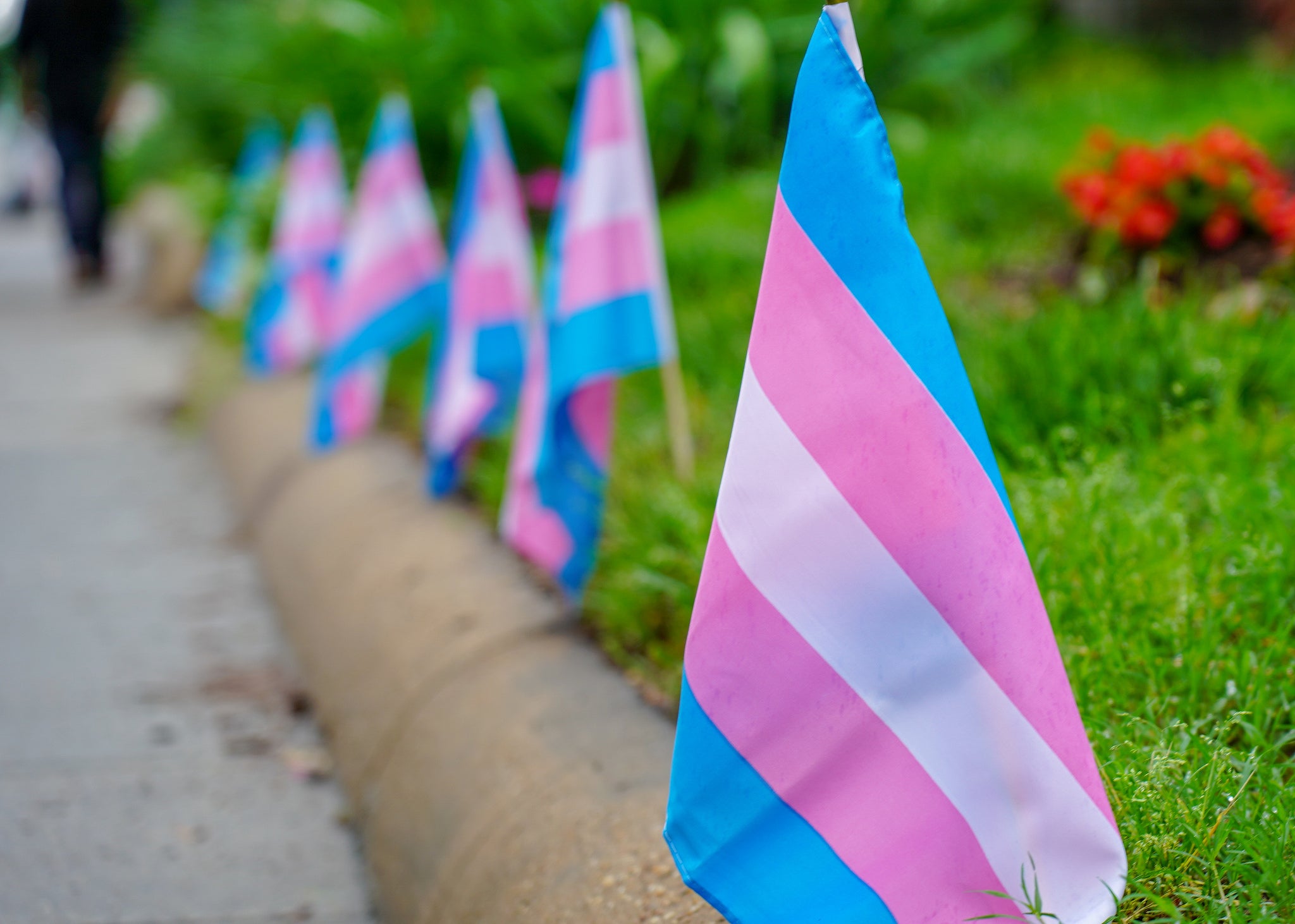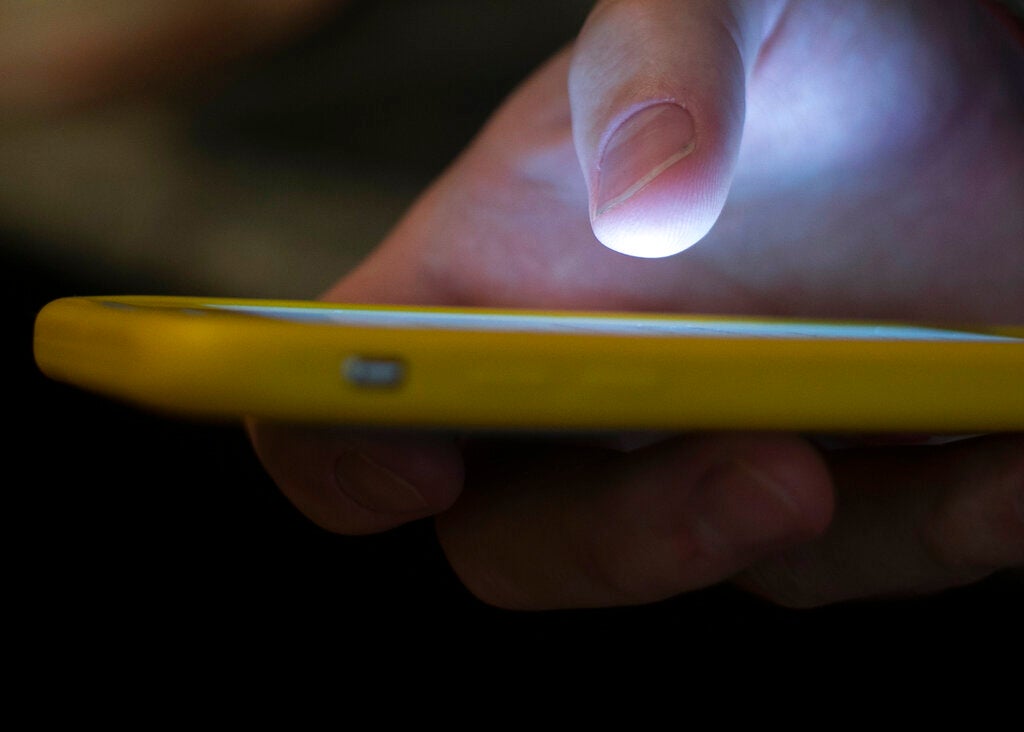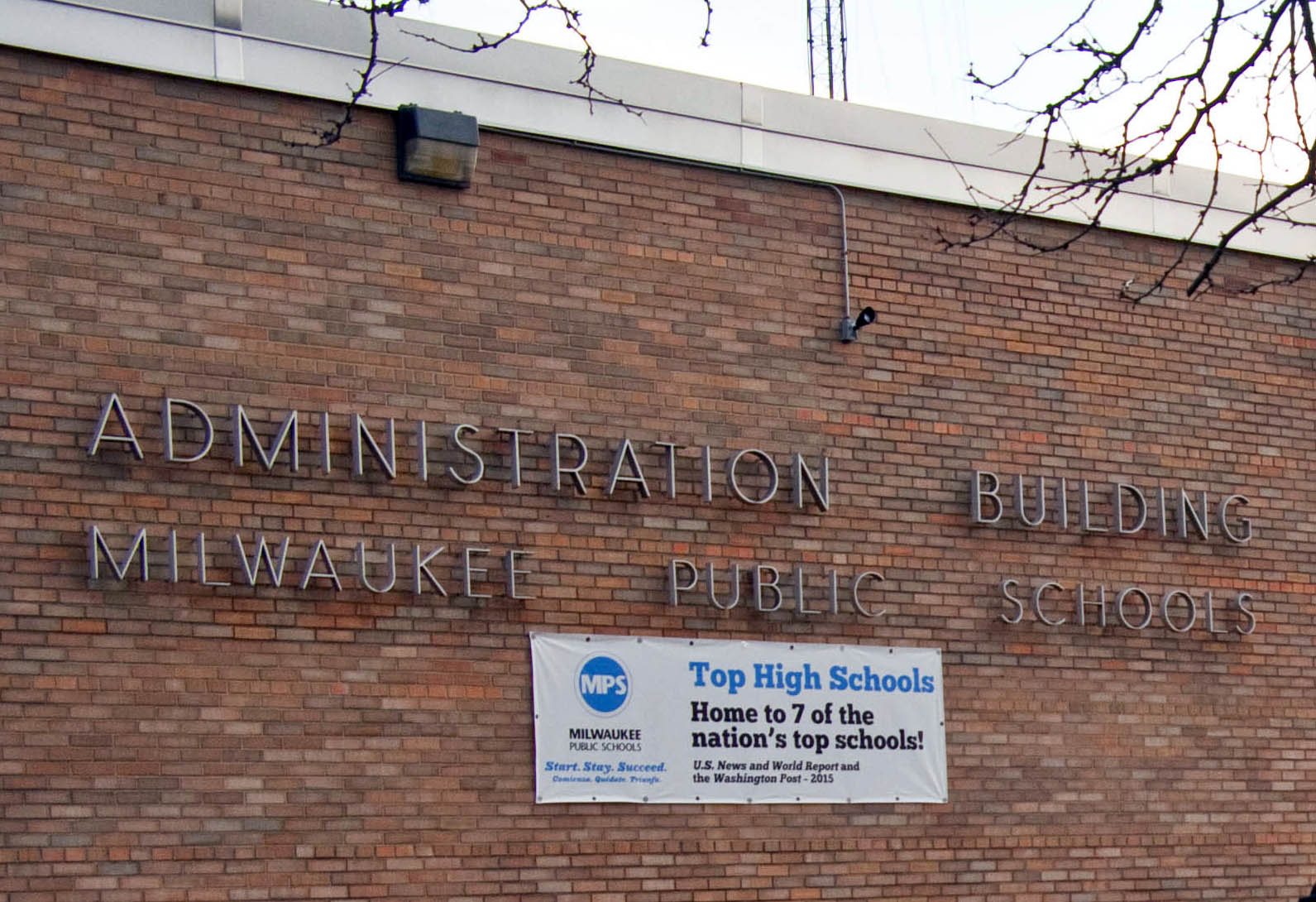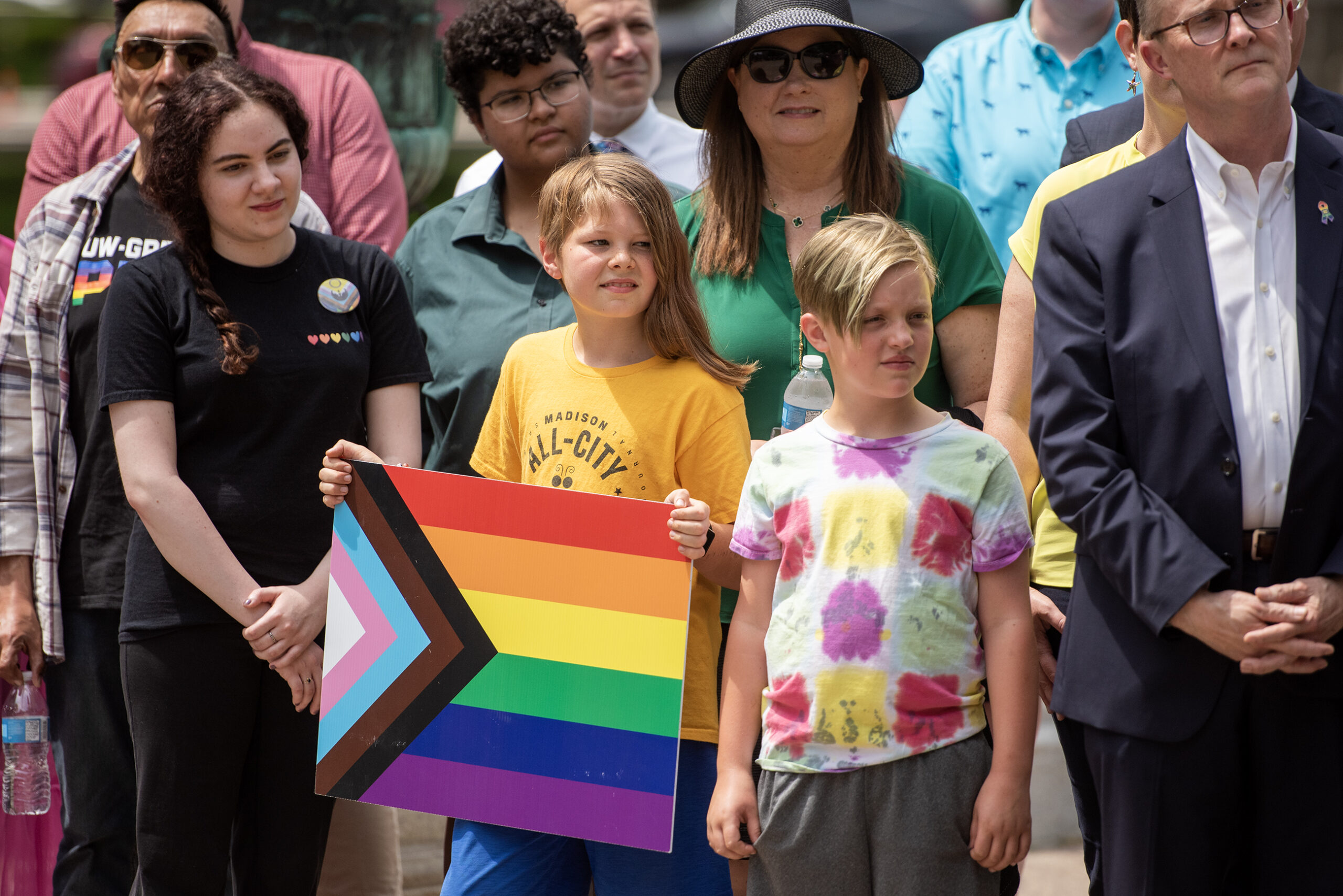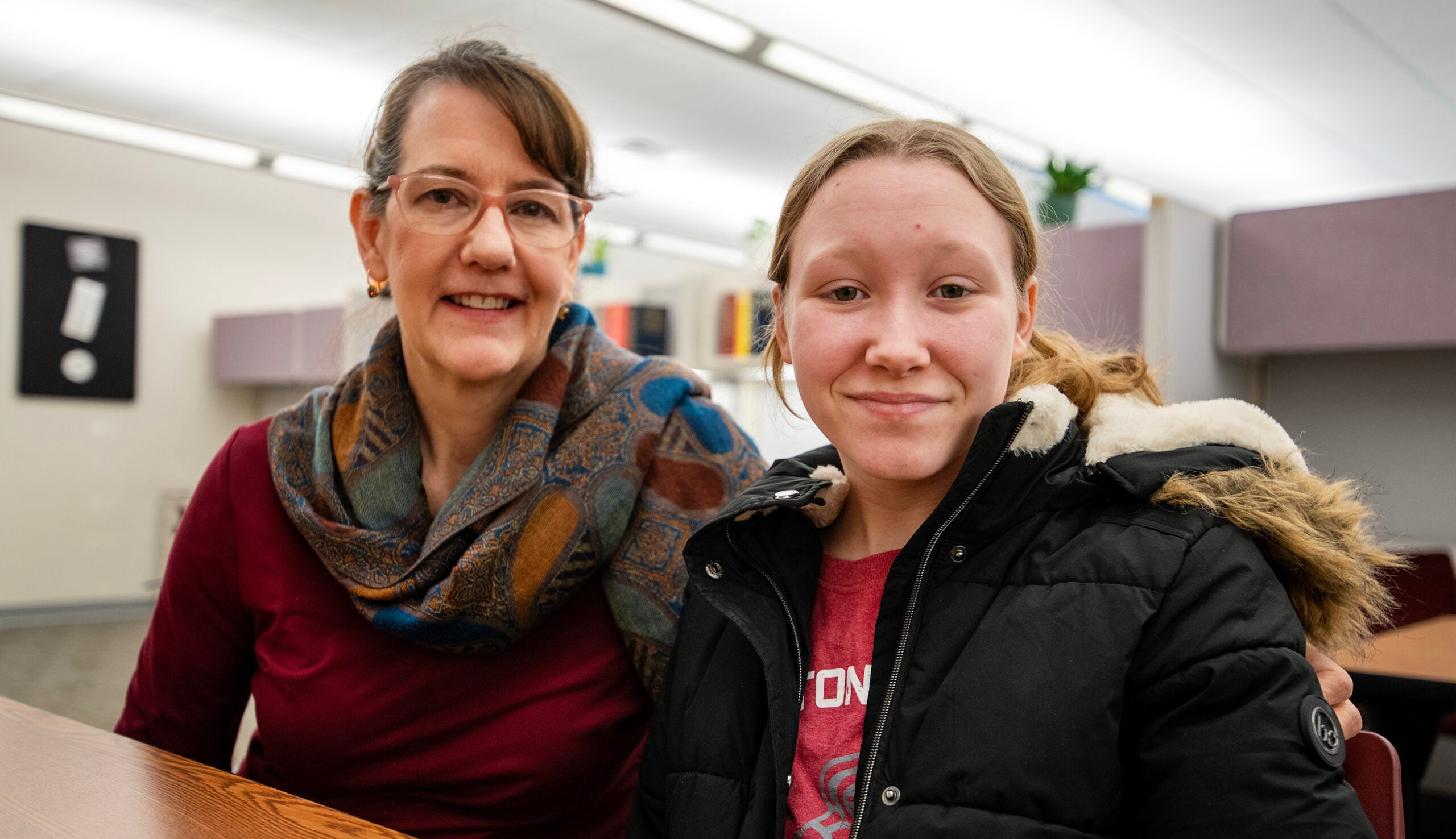Nat Werth surveyed the “gender identity and theory” section of the handbook for his alma mater, Sheboygan Lutheran High School, with shock and sadness.
“This was not in the school’s handbook when I attended,” the 2019 graduate and valedictorian said. “Wow, this is gonna make me cry. I cannot believe that this happened.”
The school’s current handbook dedicates over 1,000 words to a policy that uses Biblical teachings as the basis for its anti-transgender policies.
News with a little more humanity
WPR’s “Wisconsin Today” newsletter keeps you connected to the state you love without feeling overwhelmed. No paywall. No agenda. No corporate filter.
Werth recalled that the handbook from his time as a student had, at most, a line about gender identity. But parts of the new anti-LGBTQ+ policies felt familiar.
As Werth was preparing to graduate, he drafted a valedictory speech in which he planned to come out as gay and critique homophobic Biblical interpretations as archaic, mistranslated or misconstrued. Administrators canceled his remarks.
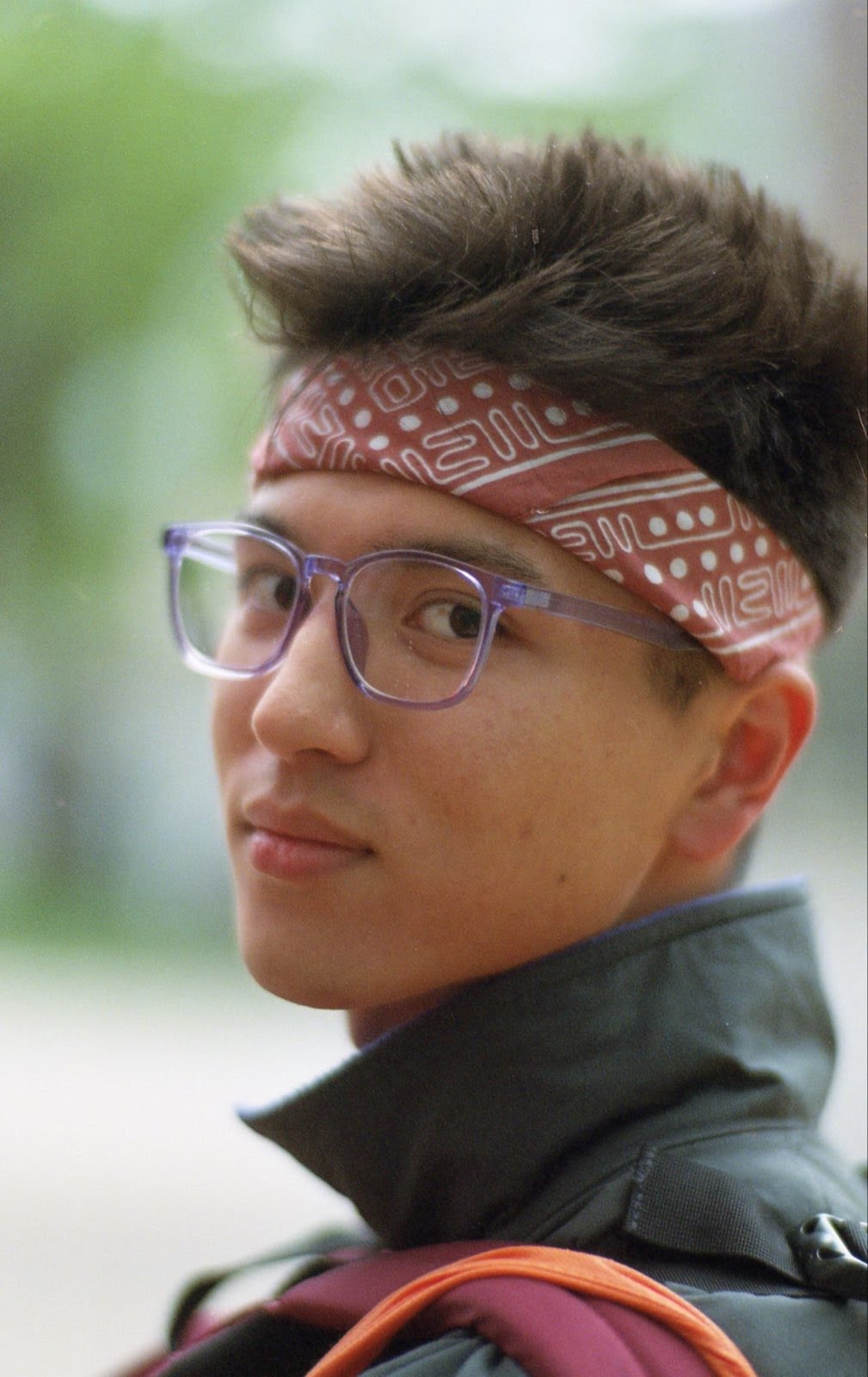
Sheboygan Lutheran is a private school that receives public funding through tuition vouchers, which currently subsidize nearly 40 percent of its students. Administrators ignored repeated requests by phone and email for an interview. When a reporter recently again asked Executive Director Paul Gnan for a comment in person, Gnan smiled and said: “Absolutely not.”
Across Wisconsin, four voucher programs serve about 52,000 voucher students, which comprises 6 percent of students at public schools; 95 percent of the participating schools are religious.
Diploma in hand, Werth began researching Wisconsin’s voucher programs. He learned that private schools receiving public funds can legally discriminate against LGBTQ+ students, and that the state Department of Public Instruction is largely powerless to stop it. And he went to the press.
“I didn’t want stuff like that to happen again,” he said. “For people to feel backed into a corner and powerless in a situation, where, like, that just shouldn’t be the case.”
Werth’s story went viral. He got to meet Jennifer Lopez and speak with Sen. Tammy Baldwin. And when he spoke about his experience, Werth urged Wisconsinites to demand their representatives change the law.
“It’s not that I’m against school choice,” Werth said. “It’s that everybody has human rights and that they should all be protected no matter what, especially the rights of kids who go to private and parochial (voucher) schools in Wisconsin.”
Discrimination justified through Christianity
There is no state law protecting LGBTQ+ students from discrimination once enrolled in a voucher school. And the federal Title IX law exempts religious institutions from complying with the anti-discrimination law if it runs counter to their religious beliefs.
This leaves religious voucher schools like Sheboygan Lutheran free to discipline or even expel gay or transgender students for expressing their gender identity or their sexual orientation. A Wisconsin Watch investigation has found that many have policies that allow such treatment.
Wisconsin Watch reviewed public materials for about one-third of the state’s 373 voucher schools and found that four out of 10 had policies or statements that appeared to target LGBTQ+ students for disparate treatment. Some had explicitly discriminatory policies, such as expelling students for being gay or transgender.
All 50 of the voucher schools with anti-LGBTQ+ stances identified by the news organization are Christian, with denominations including Lutherans and Catholics, among others. Almost every school cites religious principles as a basis for their positions.
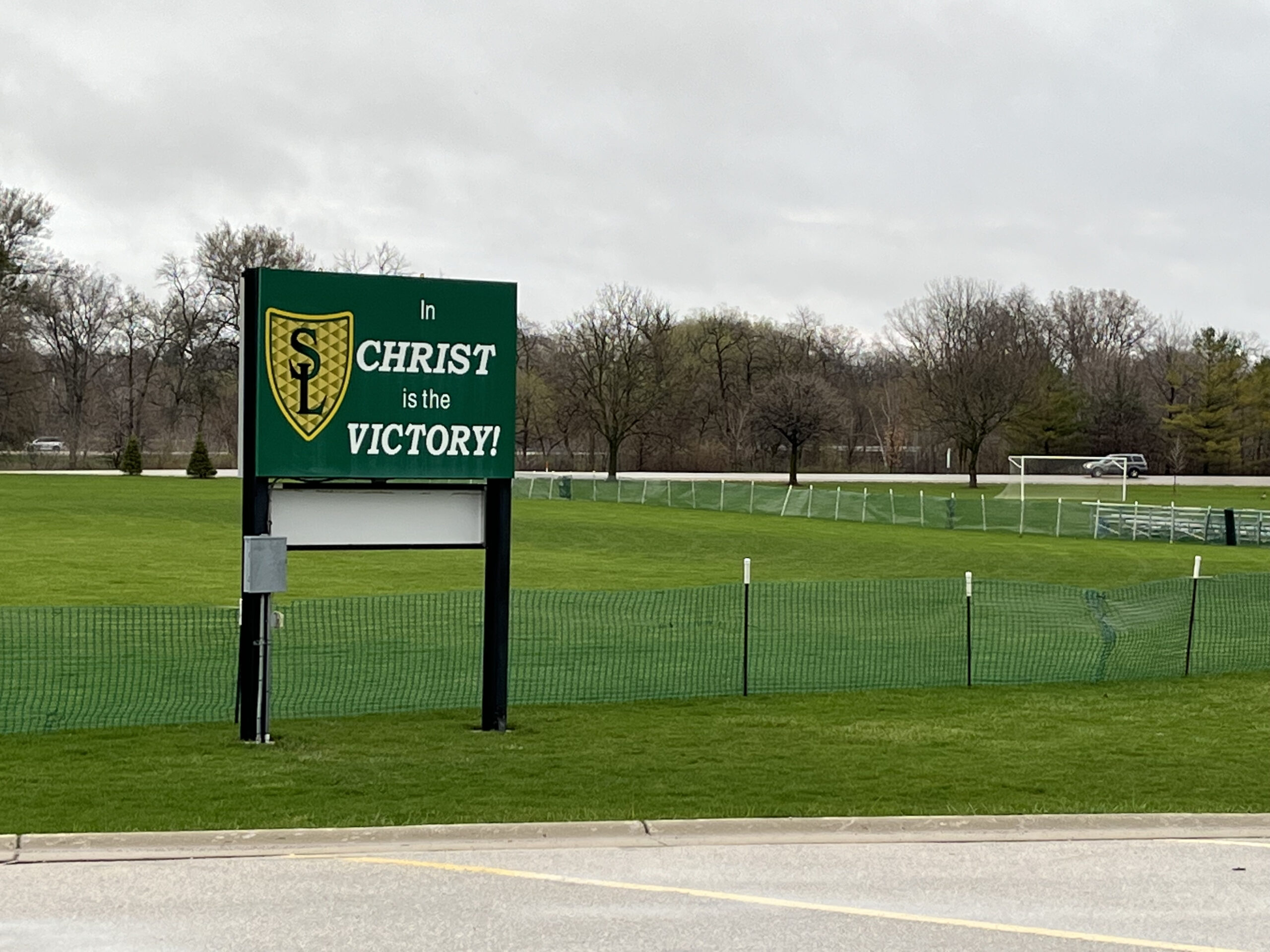
Suzanne Eckes, an education law professor at University of Madison-Wisconsin, argued that language casting gay or transgender identities or behavior as sinful, even without policies codifying the perspective, “has a discriminatory intent behind it.”
She also pointed out how some policies, although not explicit, could result in LGBTQ+ students being treated inconsistently from others. For example, some schools specifically ban all sexual contact outside of a straight, cisgender marriage.
Green Bay Adventist Junior Academy, which has nearly 68 percent of students on vouchers, says that it “does not discriminate on the basis of sexual orientation (in admissions), but does discriminate on the basis of sexual misconduct,” which includes “homosexual conduct.” Reached by phone, a representative of the school said: “We have no comment.”
Werth, now approaching graduation from college, said his experience, although difficult, was not as hostile as the policies now in place at his alma mater and elsewhere.
“There are plenty of kids in much worse situations, experiencing much worse acts of discrimination, and who aren’t able to speak up for themselves,” he said. “My story’s not even that bad, compared to, like, the trans kids who get expelled for just existing. Or for the gay kids who get beat up all the time and aren’t defended by their school’s administration.”
Sheboygan Lutheran’s current handbook said it would “take the necessary precautions, in accord with the policies of this document, to avoid bullying and to protect the integrity of those who may express tension or concerns about their biological sex.”
Research shows that LGBTQ+ youth experience “significantly greater rates” of bullying and suicide attempts than their straight and cisgender peers, according to The Trevor Project. Affirming LGBTQ+ students’ identities can reduce those rates, the advocacy group says.
Transgender students special target of policies
Sheboygan Lutheran’s anti-trans policy credits its approach to the Lutheran Church-Missouri Synod.
These policies call for the school to refrain from using the chosen pronouns of any transgender student, employee, personnel, volunteer or contracted vendor. It prohibits puberty blockers on school property if taken for transition-related care. And it requires students to use the facility, athletic team or dress code that “matches their biological sex,” although it does have “individual-use bathrooms which are available for all members of the respective community.”
“Why are they going out of their way to make people feel overtly excluded when they also have individual bathrooms? Why can’t you just say that?” Werth said as he read the policy.
At least 17 other schools reviewed by Wisconsin Watch have anti-transgender policies similar to Sheboygan Lutheran’s. Three carve out exemptions for intersex students with a required note from their doctors.
The principal for one of those schools, Green Bay Trinity Lutheran, declined an interview twice by email, saying: “We are very busy filling the gap left by the teacher and substitute shortage and have no time for these inquiries.” He said the school operates its voucher programs “fully in accordance with the law” and the beliefs of the Lutheran Church-Missouri Synod.
In recent years, anti-trans laws, such as those banning best-practice medical care or restricting athletic participation, have proliferated, thanks to a highly funded and coordinated far-right campaign. Policies regarding students’ gender identity in public schools have also attracted attention, with transgender youth and allies protesting efforts to deny a person’s chosen name or pronouns, or require parental consent to do so.
Reviewing his alma mater’s anti-transgender policy, Werth reflected: “If I was a kid with gender dysphoria, or even, like, questioning how people refer to me using my pronouns or if I wanted to use a different name and I read this, if this was what the school provided to me, that would have been extremely traumatic.”
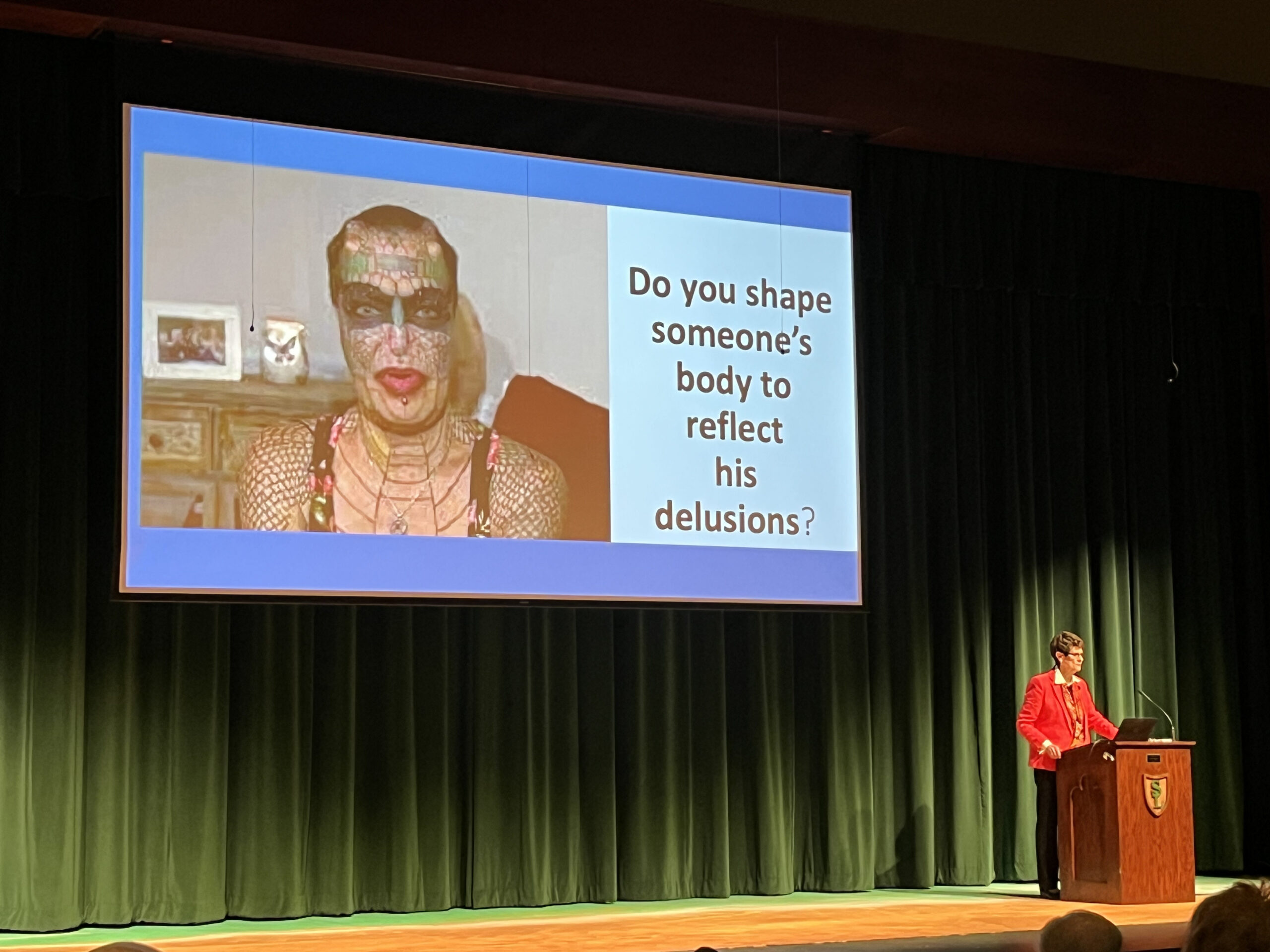
An anti-trans evening
Sheboygan Lutheran has hosted at least one anti-trans event for the public. In April, the school welcomed Christian clinical psychologist Beverly Yahnke, who gave a talk titled “Transgenderism and Sexualization in Our Schools.”
Promotional materials contained false information, claiming that “Most of our public schools are allowing students to join Gender and Sexualization Alliances without parental or guardian knowledge or permission.” The extracurricular clubs, which bring together LGBTQ+ youth and their student allies, are called Gender and Sexuality or Sexualities Alliances.
Yahnke cited the American College of Pediatricians, a fringe group of anti-LGBTQ+ physicians that the Southern Poverty Law Center designates a hate group.
And the falsehoods were exhaustive. Yahnke called being transgender a “delusion.” She described the rise in the number of transgender children — who comprise a tiny fraction of the nation’s population — as an “epidemic” like ebola or COVID-19 that “appears to be contagious” with “consequences that can cause illness, self-harm and even death.”
She described transition-related health care as “primitive” as a lobotomy, which she graphically described, and characterized people who have received desired transition-related care as “irreversibly damaged” and “left … in a wasteland.”
In a striking moment, she also argued that children should go through natural puberty, without blockers, “to discover what it feels like to be a man, to feel their shoulders broaden to take out their little sister and smack her against the wall.” When an audience member reacted in shock, Yahnke added: “In playful jest, of course.”
Addressing the private school auditorium, Yahnke added to applause: “If your first, second, third, fourth, fifth grade child is learning things, saying things, reading things that flies in the face of the faith they’ve been given by our most Holy God, it’s time to move them from the public school.”
‘Unwanted and unwelcome at school’
Ali Muldrow, co-executive director of the LGBTQ+ youth advocacy organization GSAFE, argues the anti-LGBTQ+ policies identified by Wisconsin Watch harm all students — whether cis, trans, straight or gay.
“You’re sending a message to kids who identify as LGBTQ+ that they are not wanted, they are not welcome,” she said. “And then you are sending a message to all the students who don’t identify (as LGBTQ+) that it is OK to make LGBTQ+ students feel unwanted and unwelcome at school.”
Muldrow and Werth both oppose supporting discriminatory institutions through publicly funded vouchers.
“I just want to do everything within my power to change this system that facilitates oppression with taxpayer dollars,” Werth said. “And I guess until that day happens, I won’t stop telling my story, just because it’s not right. It’s unjust.”
The nonprofit Wisconsin Watch (www.WisconsinWatch.org) collaborates with WPR, PBS Wisconsin, other news media and the University of Wisconsin-Madison School of Journalism and Mass Communication. All works created, published, posted or disseminated by Wisconsin Watch do not necessarily reflect the views or opinions of UW-Madison or any of its affiliates.

